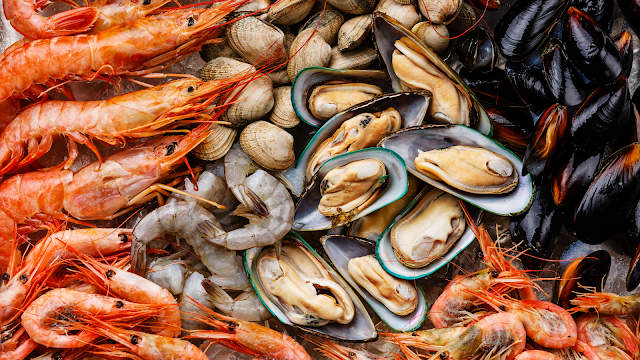Sustainable Seafood is the Most Environmentally Efficient Source of Protein on the Planet
 |
| Sustainable Seafood |
Sustainable seafood is a type of seafood that
is wedged or farmed in forms that face the persistent
importance of harvested species and the goodness of the oceans, and the
maintenances of fisheries-based societies. This operation
highpoints overfishing and surrounding destructive fishing forms.
From a number of initiatives, the procedure has raised perception and increased
issues during the method the seafood is extracted. Seafood is type of either
fished or farmed sources that can regulate or elevate manufacture in the future
without endangering the ecosystems from which it was adopted.
The global Sustainable
Seafood Market was valued at US$ 12.71 billion in 2017 and is anticipated
to register a CAGR of 4.97% in terms of revenue, over the forecast period (2018
– 2025) to reach US$ 18.63 billion by 2025.
The sustainable seafood movement has received momentum as
many people become knowledgeable of both overfishing and surrounding
destructive fishing ways. Fish farming can also have adverse surrounding impacts,
like the damage of natural wetlands and marine pollution. Marine surrounding
are presently in immense pressure. Their difficulties
mainly take place from anthropogenic reasons, such as
overfishing and surrounding damages.
Anyhow, research states that fisheries
are capable of recover or calm their populace when accountable management and rules
are in place. Inappropriately, much of seafood is gained from irresponsible
fishing carry out that endure changing some marine ecosystem. This has led
in record exhausted stocks. For instance, 85 % of the globe’s fisheries are
fished at or above their maximum sustainable boundary. Regarding the increasing
global populace and the pressure that it has, and will endure to exert on the
Earth's resources, a much sustainable process of fishing is essential if humans
wish to use its natural profusion.
The Sustainable Seafood Movement is an inventiveness
took place from the realization that the marine ecosystems of
the globe were being damaged and destructed. It started in the 1990s and
was fueled by social marketing from Ecolabel and awareness campaigns. From social marketing, the
partnership in between surrounding and NGOs
and segment permitted for the end-user to make conversant preference, robust
contributing to the preservation of marine biodiversity. As
per a report seafood consumption in Japan is over 8.5 million tons.



Comments
Post a Comment